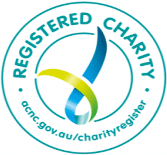
Inspiring Articles Written By Young People, For Young People
These articles were written by young people aged 14-15 as part of All Together Now’s Game Changers program.
During this co-design process, young people in this age cohort agreed that they wanted to raise awareness around certain topics relating to online hate, gaming and extremism. Through discussion and collaboration, they highlighted several important topics: cyberbullying; discrimination; far right extremism and personal experiences.
The young people recognised the significance of these issues – both on a personal level and within gaming communities. They chose to write a series of short articles about these topics to explore them further. These articles not only present their perspectives on complex topics but also reflect their direct experiences and the challenges they face in online spaces, as well as the ripple effects in the offline world.
The topics covered in the articles were chosen by young people directly. These were issues that were considered close to heart for them and allowed them to reflect on their own personal experiences and share their stories with the wider community.
By amplifying gamer-led and youth-led initiatives, the Game Changers project aims to foster safer and more inclusive gaming communities for young people. As a testament to the fantastic work created by young people, YouthWise Magazine, a national publication focusing on mental health has selected to publish one of these articles in its upcoming edition. This can be found at youthwise.com.au
Article #1
Discrimination
in Gaming
Article #2
Far-Right Extremism
and Gaming
Article #3
Personal Stories and Experiences
Article #4
Cyberbullying
in Gaming
Article #1 – Discrimination in Gaming
Have you ever been discriminated against while gaming? Do you know what discrimination in gaming is? Have you ever wondered how many others experience this when gaming? Want to find out some solutions to discrimination in gaming? Well, read on, because that’s what we’re discussing in this article.
What is Discrimination?
Discrimination is a very broad subject, but when defined, it means the unfair treatment of someone based on certain attributes, this can include discrimination based on race, gender and sexuality amongst other things. For example, it can manifest as exclusion in activities and events towards a particular group of people, whether regarding gender, ethnicity, sexuality, disability, or even small things such as eye and hair colour. Sadly, in most worldwide communities, some forms of discrimination are very much present, in one way or another. All the time people are being discriminated against, and many of us are constantly questioning, ‘Why, why me? Who would do such a rude thing?’. So really, what impact does it have on people?
What impact does discrimination have on the gaming community?
Discrimination isn’t only at an individual or community level, it is also present on a more systemic level in our society. This often leads to stress, anxiety, depression, and eventually physical health issues like high blood pressure and weakened immunity. In extreme cases, it can also increase the rate of suicide in certain groups of people that are more prone to discrimination. Discrimination divides people and can destroy their relationships and sense of self and make them feel undervalued.
“Speaking from personal experience when I was finishing primary school, I was often discriminated against due to the colour of my skin which made me feel less valued than other kids. I was often the target of discrimination and was often picked on and treated negatively. This harmful experience taught me to never disregard people based on something they have no control over such as personal characteristics or attributes. “
On what basis are people discriminated against?
Now that it is clear what discrimination is and its impacts, let’s look at the factors that can make people act in a discriminatory way. Discrimination within gaming communities can be based on several factors such as biological sex, sexual orientation,socio-ecenomic status, ethnicity, perceived disability, and even things such as gaming skill amongst many other things. Often, people may be victimised with other gamers displaying prejudiced behaviours against certain groups of people, initiating discriminatory attacks or activities against them.
For example, a person’s biological sex or sexual orientation can be a key factor that influences people to discriminate against them. Studies have shown that women are more likely to be targets of discrimination, most likely due to widespread sexist ideas from toxic gaming communities. Those who identify as transgender, gay or lesbian are also more prone to be targets of discrimination.
A gamer’s ethnicity can also come into play when looking at what basis people are discriminated against. We are all well aware of the racist ideas that are prevalent within society, and even more so in certain gaming communities or platforms. Toxic gamers discriminate mainly against people from different minority groups who occupy a lesser status in these gamers’ eyes.
People with disabilities may also be targets of discrimination. People often follow the same logic they have with other minority groups, making people with disabilities the targets of online hate and discrimination. This can often be due to a lack of understanding and awareness.
In gaming, even differing personalities and skill levels can also lead to hateful comments and behaviours and can affect how players are treated. While not a form of discrimination based on personal attributes it is worth mentioning as this is a common experience for many gamers. Extroverted individuals may be outgoing, while in contrast, introverts can be overlooked or misunderstood, sometimes creating a toxic environment for them. Likewise, highly skilled players may receive admiration or praise, but lower-skilled gamers often face negative stereotypes and harassment, discouraging participation. This skill gap often creates some of the most toxic ideas and acts that people carry out, which can stifle diversity and inclusivity, ultimately detracting from the overall gaming experience.
How does discrimination manifest in Gaming?
Discrimination in gaming is most commonly manifested through exposure to stereotypical, biassed attitudes and behaviours that target individuals or groups based on their characteristics such as race, gender, age, disability, or socioeconomic status. This can lead to gamers adopting these discriminatory views by mimicking the toxic language and stereotypes they encounter in online environments, where anonymity and competitive pressures can amplify these negative behaviours. Additionally, influences from older players, online forums, or gaming influencers who normalise hate speech, bullying, or biassed attitudes towards others also contribute significantly to the manifestation of discrimination.
Prevalence of discrimination in gaming
Discrimination in gaming remains a prevalent issue, with people frequently encountering discrimination based on their race, ethnicity, gender or sexual orientation. Sources reveal that women and ethnic minority groups are disproportionately targeted, often facing verbal abuse and exclusion in gaming communities. For example, in a study conducted by Bennett University, 77% of interviewed female gamers reported being the target of gender-based discrimination. In another survey conducted by ADL (anti-Defamation league), 30% of the interviewed Black/Hispanic/Latino(a) gamers reported being discriminated against. Toxic behaviours and biases not only alienate affected individuals but also perpetuate inequality in gaming industries. While some efforts have been made such as introducing community guidelines and reporting systems, the continuation of constant discrimination continues to go unchallenged on many platforms and gaming spaces.
What can be done to fix discrimination in gaming?
Almost all forms of discrimination are in some way present in gaming communities. This area needs to be focused on if we want to create an inclusive gaming community. Here are some ideas for what you, on an individual and communal level can do about discrimination in gaming.
1. Give people a chance!
If you are playing a game with your friends, or strangers, and you notice that there is a person whose skill level is not the same as yours, give them a chance! Give players of all skill levels and backgrounds a fair go to make gaming more inclusive. It’s not all about winning, it’s about having a good time!
2. Report!
This one might seem obvious, but surprisingly, around 40% of targeted individuals do not report sexist or racist behaviour, because they think it doesn’t do anything, and that the player will simply keep being toxic after the ban/suspension. This is, of course, not true, and if you have tried to reason with whoever is making discriminatory comments, and it did not work, you should always report these kinds of behaviour.
3. Join a movement
If you feel strongly about these issues, you should consider joining a campaign, which aims to raise awareness about biassed harassment in gaming, and hopefully lower how many people experience it. If this sounds like you, you should consider joining, because the more people raising awareness about these things, the faster it will improve. Also, along this line is protesting and signing petitions for developers to make games more diverse and with better security.
4. Become a Moderator in a chat platform like discord.
One of the reasons people don’t think reporting will work is because they think the people checking the servers don’t care, but you can change that. By becoming a moderator, you can check online servers in which you are a moderator for toxic language and help whittle away at the toxic gaming community.
Conclusion
The impact discrimination can have on those who are targeted can be extremely detrimental. So, we all need to try not to discriminate against fellow gamers regardless of any of their characteristics. Also, if you witness anyone being discriminated against, or are being discriminated against yourself, you need to try to diffuse the situation or report the incident immediately. Raising awareness and moderating servers is also a good way to counteract the discriminatory actions of some gamers. Try to remember these tips next time you encounter discrimination or want to try and make a difference. Together we can make gaming spaces less discriminatory and more diverse and inclusive!
Sources:
Article #2 – Far-Right Extremism and Gaming
Far-right extremism
Radicalisation of young people online, that being the process by which an individual or group is indoctrinated into an extremely radical set of beliefs often through an online community, is an issue of increasing prevalence today. Teens and even younger children are increasingly being allowed access to the internet without the right safeguards and knowledge.In recent years, right wing radical actors have increasingly been targeting younger children, with children as young as 12 being inducted into far-right extremism.
Prevalence in gaming
Far-right extremists have been evidenced using message boards and other forums, with a particular recent surge in the use of gaming platforms to engage young people. Some far-right extremist groups have even gone as far as creating their own versions of certain games and platforms to propagandize, network with other extremists, recruit members, and generate funds for their goals. For example, in recent years, far-right groups have created violent extremist content within popular games such as Roblox. Many recreations and simulations of horrific events linked with extremism have been found, such as the recreation of the 2019 Christchurch terrorist attacks. Statistical evidence points to this worrying trend. Around 10% of teens playing any online video games have encountered white supremacist/far-right ideologies, including for example reports of holocaust denial. In addition, more than 80% of players have experienced harassment, an increase of 9% since 2021. Unfortunately, no sufficiently succinct summary of all the current data exists, so obtaining a clear picture of the entire issue is not easy.
Why does it matter?
The question one may ask is ‘why does this matter? Kids’ minds are young and impressionable. Games and online gaming spaces can serve as places of indoctrination. This indoctrination subconsciously affects children’s minds, making them think that certain ways of thinking are correct. There is statistical evidence showing the extent of the problem. According to the AFP, investigations relating to far-right extremist activities increased from 2% of all investigations in 2020 to 15% in 2022. One should not have to express why far-right extremism has a negative societal impact as there already exists a large body of work highlighting the negative impact of far-right extremism on society.
What are the signs and what can I do about it?
The next question is what are the signs and what can people do about it? There are a whole lot of warning signs that parents and friends of the affected party can take note of, and many steps that they can take to assist that party in coming back from the brink of extremism. Some of the warning signs could include an increase in the extremist nature of their rhetoric, distancing themselves from their family and friends, use of more emotionally charged or hateful language, a fixation on conspiracies or contentious social issues, and developing a stronger interest in certain news events or forums on the internet. Fortunately, this mind set is not irreversible, and some of the ways to help them might include showing them more information on the subjects they’re talking about, keeping track of what games they’re playing and where on the internet they’re going, and being available to talk to them. This can be helpful since coming out of an absolutist extremist worldview is a very difficult thing for most people to do and having someone there for them can sometimes be the best thing.
Concluding remarks
In conclusion, far-right extremism and the indoctrination of young people through games and gaming media is a growing concern. This issue must be addressed by the culture of video games, lest more people begin believing in things that are wrong and can lead to thoughts and actions that are dangerous for them and the people around them. Far-right extremism in gaming needs to be addressed by all sectors of society in order to have an impact on this multifaceted and complex issue facing young people today.
Sources:
- https://www.afp.gov.au/news-centre/media-release/holiday-season-warning-extremists-infiltrating-online-and-gaming#:~:text=In%20recent%20years%2C%20extremists%20have,them%20to%20undertake%20criminal%20acts
- https://www.afp.gov.au/news-centre/media-release/extremist-recruitment-reaching-young-australian-gamers
- https://journals.sagepub.com/doi/full/10.1177/15554120231167214
Article #3 – Personal Stories and Experiences
The negative experience of gaming online
While a majority of teens around the world game online for fun, live connections to their communities, competitive edges, and other virtual friends, gaming online is not always a positive experience. According to the eSafety Commissioner Australia, 68% of young people are harassed while gaming online. Learn about three teens—stories published anonymously—who reflected on their negative experiences while gaming online and the impact it has.
The published anonymous stories were compiled from members of the public using an anonymous optional survey that was specifically created for the purposes of this article.
The Experiences
Anonymous 1: “I Got Bullied Because I Wasn’t Good Enough”
“I used to play this multiplayer game all the time after school. But after I got banned from rooms for no reason, I never played again. People would kill me in the rooms just to remove what I spent all that time achieving. For no reason, it is not worth it.”
Anonymous 2: Scammed and Shamed
“I got scammed in this game after a trade. I was trying to trade an item—I was going to trade my item, someone said they would trade a different item with me. He ended up taking my item and he didn’t give it back. In the text chat, he responded with haha and others supported him and called me stupid for trusting him. I was such a fool. I never played that game again.”
Anonymous 3: Backstabbed by My Team
“Somebody else shared a story about a game team backstabbing her. I was playing a team game with some friends—we were on a team together, but they started blaming me for our losses. They were cursing me out and kicked me out of the group chat. I was so upset and out of the loop that I never wanted to play again.”
How This Could Be Prevented
It’s clear that even though gaming is an uphill battle sometimes due to such experiences, there are ways to make it somewhat less of a challenge and help avoid some of the negative experiences that can occur while gaming:
1. Better Moderation: So many games need functionality that automatically filters (and removes) nasty remarks.
2. Awareness: Gamers need to be aware of what constitutes cyberbullying and where to report bad actions.
3. Reporting: Every game should have easy access to reporting options that guarantee anonymity.
4. Parent Accountability: Parents must teach their children safety measures and guarantee that they are supervised when playing.
5. Real Life Penalties: Those who bully others, inappropriately acting out while gaming, should be penalized the same as if they were bullies in the real world.
Conclusion
Gaming should be a fun time. But when things like this happen, it isn’t. With better safeguards in games and a heightened sense of empathy, the digital world can be as comfortable as we want it to be. We can make online gaming a more welcoming and inclusive place for all those involved!
Sources
Article #4 – Cyberbullying in Gaming
The digital age has completely revolutionised the way people communicate, and a new way for gamers to play has emerged. With the global gaming industry expected to be worth in excess of $320B USD by the year 2026, the internet has allowed more gamers around the globe to connect and compete seamlessly. But this age of ultra-connectivity has brought with it a much darker side compared to the shiny facade of online gaming: cyberbullying.
What is Cyberbullying?
Cyberbullying is a form of harassment, intimidation, or humiliation that occurs through digital platforms, which include social media, gaming forums, messaging applications, and other virtual spaces. Unlike the traditional forms of bullying, the impact of cyberbullying extends further because of its ubiquity. The victim may be called names, have false rumours spread about them, or be doxxed, among other harmful behaviours. Unfortunately, with the expansion of our digital presence, cyberbullying also expands, and this has made a whole lot of people ask: “Why me? Why do they hate me so?”.
Cyberbullying affects victims emotionally, mentally, and even physically. It leads to severe stress, anxiety, depression, and in extreme cases, it can cause suicidal thoughts. The harassment can interfere with studies, friendships, and even impact a person’s growth.
Speaking from personal experience, I have been a target of fake accounts that spread rumours about me in group chats during my early teens. This made me feel like an outcast, paranoid, and less of myself. With time, I learned the importance of building resilience and seeking support, but the scars of such experiences often linger.
Contributing factors & how it manifests
The importance of knowing the roots of cyberbullying forms a basis for tackling this situation. Certain factors have created the perfect conditions for cyberbullying to flourish. This includes:
1. Anonymity: The internet allows users to remain anonymous, doing things that are impossible to do in the real world where such anonymity is not present. The anonymity, through deindividuation increases the general crowd anonymity that leads to the development of such antisocial behaviour.
2. Power Imbalance: Bullies often target individuals they perceive as weaker or different in order to assert dominance.
3. No recourse: Most cyberbullies firmly believe that since it is online, nothing will ever come of it and they will not be held responsible at any point. Online spaces are notorious for being unregulated, despite the concept of the digital footprint. This lack of regulation in reality means that cyberbullying is often left without due repercussions.
Cyberbullying manifests in several ways including but not limited to:
- Harassment: Repeated hurtful messages or threats, these can be private or public messages.
- Doxxing: Publishing someone’s private information, such as their name, address, or bank account number without their permission.
- Exclusion: Leaving a person out of group chats or online activities deliberately.
- Impersonation: Making fake accounts with the intention of taking a person down.
- Rumour-spreading: Publishing fake news for the devaluation of someone.
All the above practices create a toxic environment where the victims are made to feel helpless.
Cyberbullying, as one may expect, is quite prevalent. Current research estimates that over 40% of teens have faced one form of online harassment, and the targets are highly disproportionately represented among women, sexual minorities, and racial-ethnic minorities. According to a report by the Pew Research Centre, for instance, 59% of U.S. teens say they have been bullied or harassed online. Whilst there has been increasing awareness about the issue, the anonymity of the internet coupled with its easy accessibility through digital platforms, has made the fight against cyberbullying tough.
What Can Be Done to Fix Cyberbullying?
Cyberbullying is a problem best tackled at the individual, community and systemic levels. We can take some of the following actions to help tackle it:
1. Speak Up!
One of the surefire ways of combating cyberbullying is reporting the incident to trusted adults or moderators or confronting the bully when safe/appropriate to do so.
2. Report and Block
Most social media platforms and online forums have tools that can be used to report abusive content and block users. Making use of features on these platforms to report cyberbullies can help prevent cyberbullying in the future.
3. Join Anti-Cyberbullying Movements
Organisations like the eSafety Commissioner and BullyZero have been working tirelessly to combat online harassment. You can support these movements through volunteering, donating, or simply passing on their message.
Conclusion
Cyberbullying is one of those issues that demand an intervention from all quarters. Whether this be by reporting the abusive behaviour, being of helpful support to the victims, or simply being an informed bystander, we all play a part in the fight against cyberbullying. We are all in this together to make the internet and gaming spaces a safer and more inclusive place regardless of who you are.
Sources
More resources

Quick Videos
created by young people aged 16 – 17
Blending elements of popular gaming culture with a critical lens, these short videos challenge toxic behaviours while offering messages of encouragement and hope, and amplify the voices of young people calling for change.

Mini Podcast Series
created by young people aged 18 – 21
Tune in to hear directly from young people as they share their perspectives about the gaming world. Each episode features a roundtable discussion with a diverse group of young gamers, offering a wide range of opinions and experiences.

Resource Guide for Parents and Gamers
created by young people aged 16 – 17
Discover this evidence-based guide on the benefits of healthy gaming, risks and toxicity in gaming culture, cyberbullying and mental health. It also provides practical advice for parents on when to be concerned and how to support their children.

Sign Up to All Together Now’s Newsletter
Stay informed about our latest anti-racism programs addressing critical issues such as racism, divisive misinformation, online hate and extremism.
Our regular newsletter will guide you in unlearning racism and adopting an anti-racist mindset. You’ll receive actionable tips on how to actively challenge racism and contribute to positive social change.


